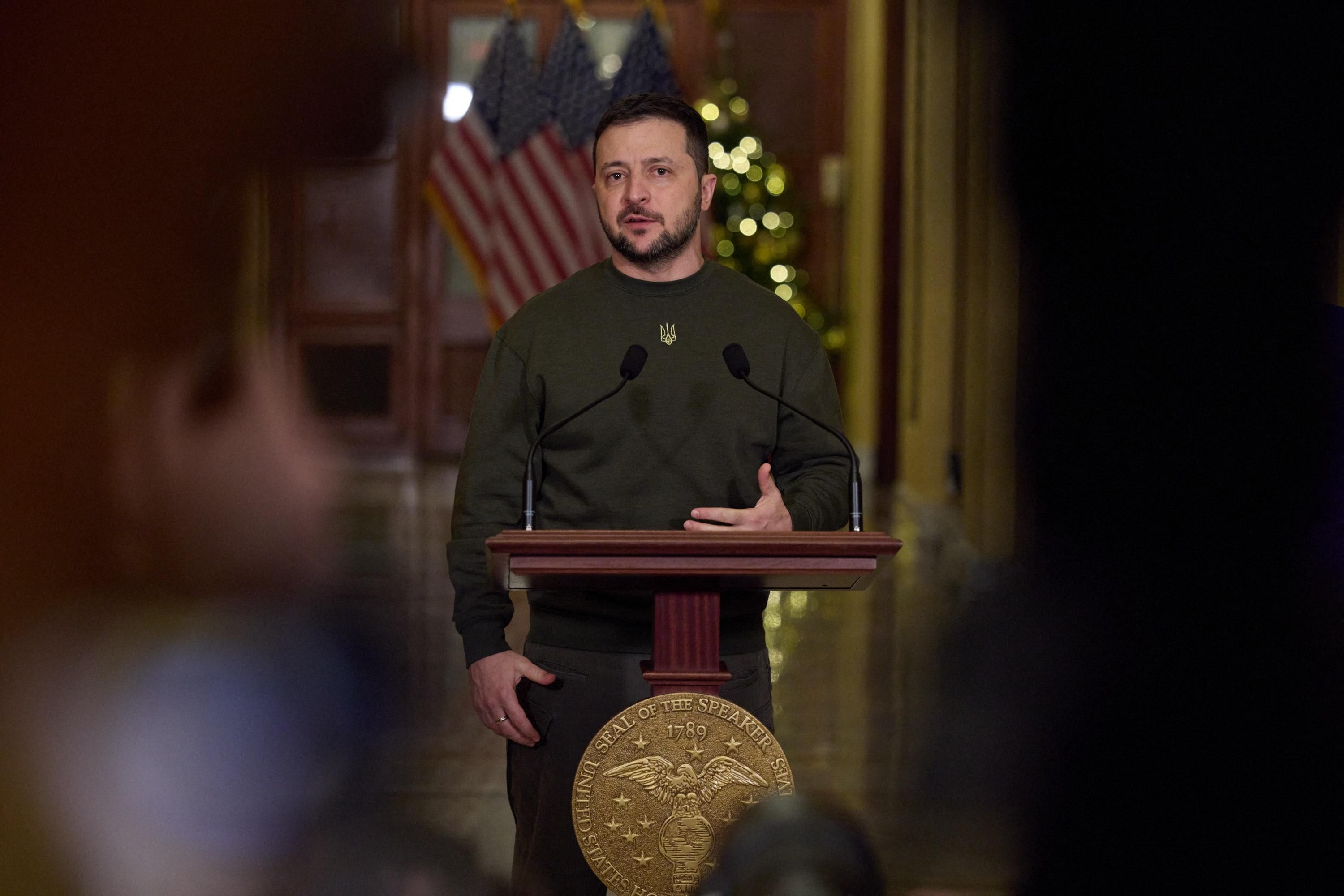In a historic address to a joint session of the US Congress on Wednesday, Ukrainian President Volodymyr Zelensky pleaded his case for why the US should continue greenlighting security aid to his country. So what’s Zelensky getting and what does he still want? The Biden administration announced this week that it was earmarking another $45 billion – part of a sprawling $1.7 trillion government spending bill that passed the Senate on Thursday and awaits a House vote – in military assistance to Ukraine. Half of the funds will go toward arming Ukraine’s army and replenishing US stockpiles. Crucially, an additional $1.85 billion package was announced on Wednesday that includes the Patriot air defense system that Kyiv has long been requesting to help protect its energy infrastructure from Russian bombardments.
Still, the White House has not delivered other items on Kyiv's “Christmas wishlist,” including US and German-made battle tanks. (Berlin says it is following Washington’s lead on this). When asked this week by a Ukrainian journalist why Washington doesn’t give Ukraine everything it needs, including “long-range missiles,” Biden gave a waffly answer about the “prospect of breaking up NATO and breaking up the European Union.” But the real reason is likely that the White House wants to keep its support for Ukraine incremental and see how the Kremlin might respond. For more on how Zelensky’s pitch is landing in Washington, Clayton Allen, director for the United States at Eurasia Group, shares his perspective in US Politics in 60 Seconds.More from GZERO Media
U.S. President Donald Trump meets with Italian Prime Minister Giorgia Meloni in the Cabinet Room at the White House in Washington, D.C., U.S., April 17, 2025.
A federal judge set up a showdown with the Trump administration on Wednesday with a ruling that threatens to find the government in contempt if it fails to comply with a judicial order to provide due process to Venezuelans deported to a prison in El Salvador.
California governor Gavin Newsom kicked off a campaign to promote Canadian tourism in his state, pitching its sunny beaches, lush vineyards, and world-class restaurants.
The Liberals, long the enemies of Quebec's sovereigntists, can only say, “Merci beaucoup, Donald."
For insights on the upcoming Canadian election, GZERO’s Tasha Kheiriddin sat down with two senior advisors at Eurasia Group: Vice Chairman Gerald Butts, former advisor to Liberal Prime Minister Justin Trudeau, and John Baird, former Cabinet minister under Conservative Prime Minister Stephen Harper.
Donald Trump’s administration announced that it is opening investigations into pharmaceutical and semiconductor supply chains, which will likely result in tariffs that will hurt suppliers in Europe, India, and Canada.
2.75: Canada’s central bank held its key interest rate steady at 2.75% this week, ending a streak of seven consecutive cuts.
Hard as it is to imagine amid the harrowing US-China trade war these days, there was a time when the two countries hardly did any business with each other.
As the Democrats start plotting their fight back into power in the 2026 midterms, one issue has come up again and again.
China’s economy grew faster than expected in the first quarter, expanding at an annual rate of 5.4% — 0.3 percentage points above forecasts — driven by strong consumer spending and industrial output.
Jordanian authorities announced on Wednesday the arrest of 16 people accused of planning terrorist attacks inside Jordan. The country’s security services say the suspects had been under surveillance since 2021, and half a dozen of them were reportedly members of the Muslim Brotherhood, a transnational Islamist organization.
